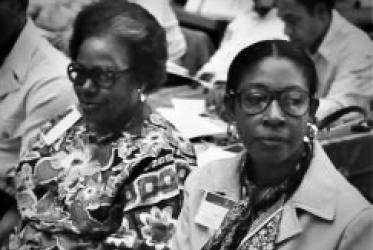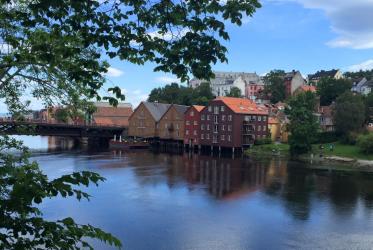Displaying 1 - 20 of 22
Linda Bloom reflects on three decades with United Methodist News
08 February 2021
In pictures: Week of Prayer for Christian Unity
01 February 2021
Churches should use their voice on climate change
26 February 2020
WCC well-represented in Religions for Peace leadership
07 October 2019
WCC pressing ahead with disarmament work
28 August 2019
3rd Explorations in Evangelism meeting: "Evangelism and the legacies of colonization and enslavement"
23 - 28 June 2019
Toronto, Canada
Emily Welty: tide of hope for a world free from nuclear weapons
19 September 2017
New Executive Committee members elected in Trondheim
28 June 2016
Pilgrimage and youth
28 June 2016
USA Racial Justice Accompaniment Visit
18 April 2016
"I hit the ground running": Katalina Tahaafe-Williams
16 February 2016
Momentum builds for ban on nuclear weapons
16 December 2014
Prayers, reflections and action during “Time for Creation”
15 September 2014









